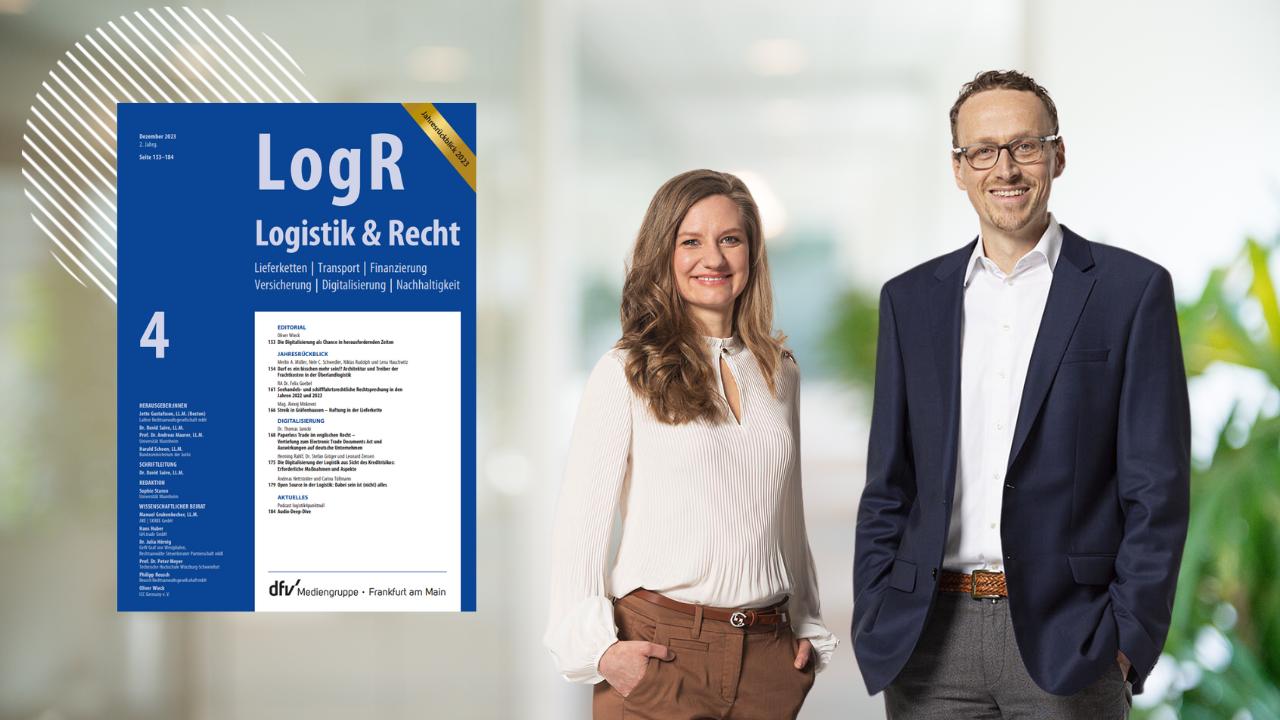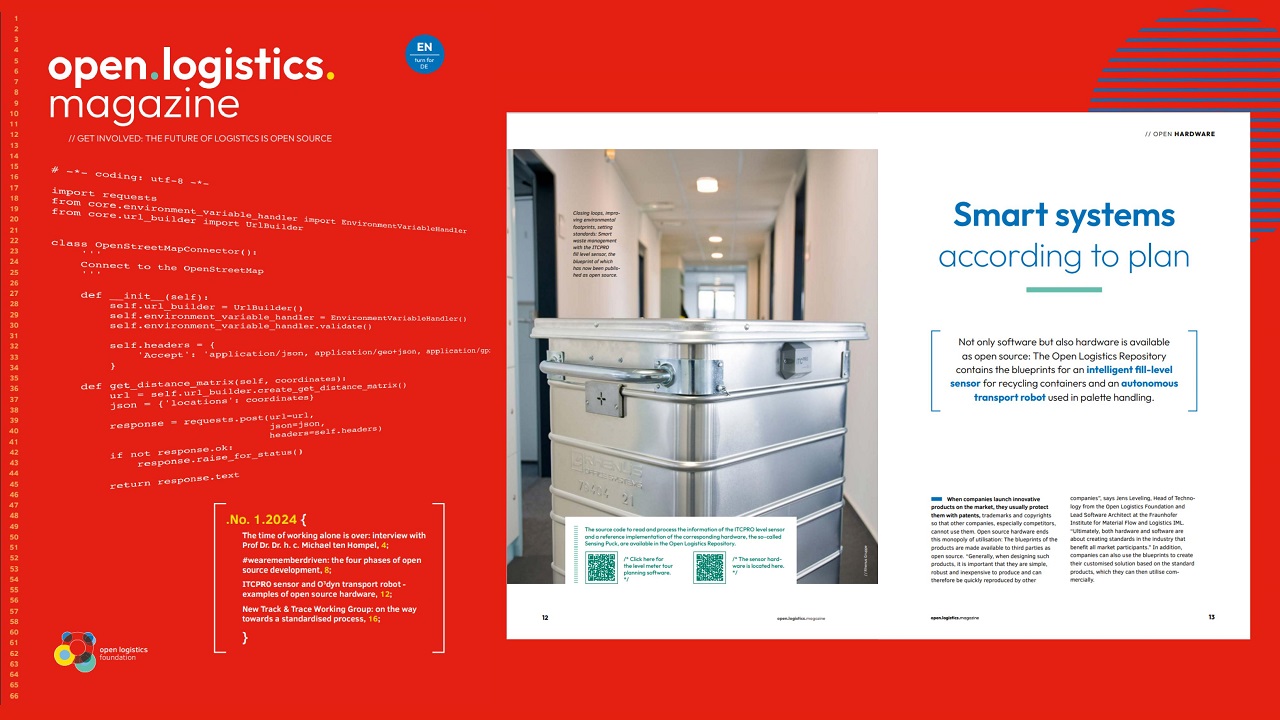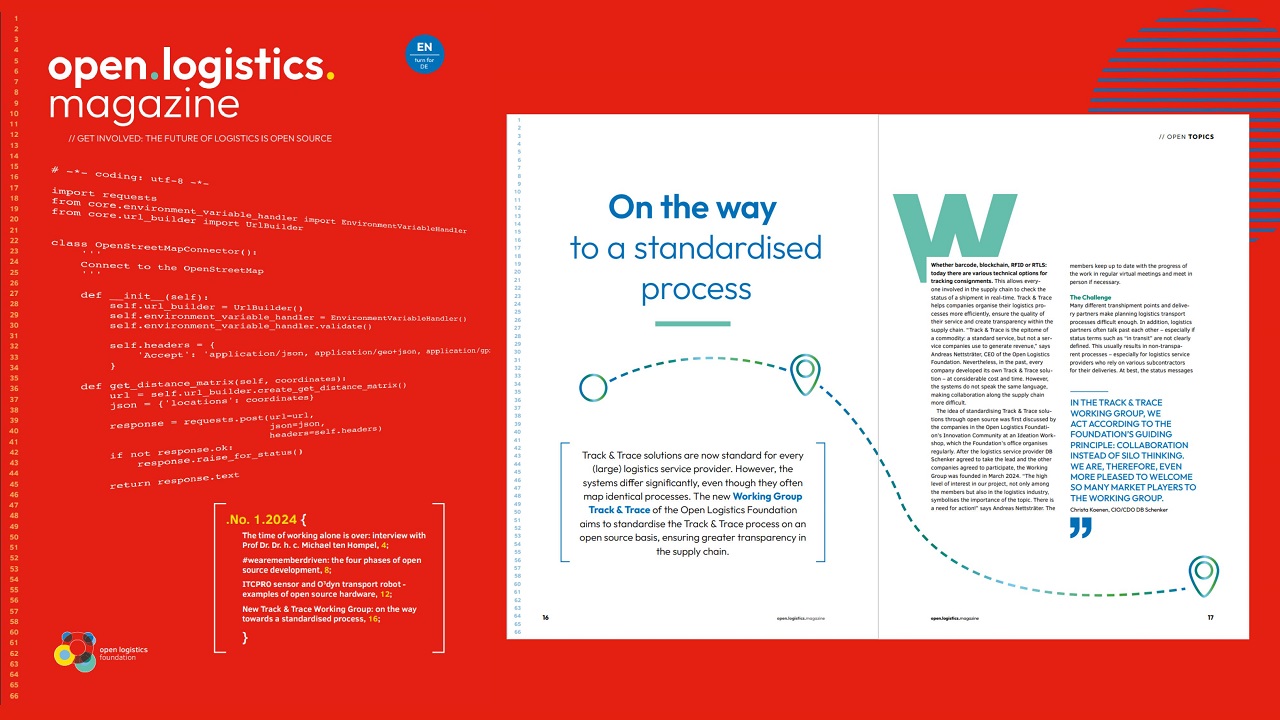What logistics does not earn money with
For every company, the question of how or with whom it earns money is crucial. The Open Logistics Foundation starts at the other end of the spectrum and asks: How can you not earn money in logistics and supply chain management? Where is it worth joining forces with competitors to develop compatible solutions? This is to share the development effort and standardise processes through de-facto standardisation and strengthen the competitiveness of entire locations. The result is a more efficient use of resources.
The Foundation refers to this as commodities. This refers to non-market-differentiating services and processes. They are simply what customers expect. For example, having a light in the fridge is expected. This is neither scrutinised at the time of purchase nor factored into the purchase decision. Commodities do not represent a unique selling point for the company compared to its competitors, nor can it earn money with the service. Nevertheless, every company still invests much time, energy and money in developing such commodities. The Open Logistics Foundation aims to allow companies to create non-market-differentiating services in an open source community – together with other companies.
Collaborating on de-facto standards through open source that apply to the entire logistics and supply chain industry allows companies to invest their resources to develop their unique selling points and strengthen their competitiveness. Isolated solutions rarely make sense today and create unnecessary inefficiencies. This is why it is crucial to rethink processes, applications, or interfaces for logistics and supply chain management, which every company struggles with.
Governance: a playing field and rules of the game
Cooperation between market players and competitors requires a clear and transparent system of rules and coordinates. The Foundation’s governance is therefore also in line with the ideas of Prof. Dr Dirk Riehle, Professor of Computer Science at Friedrich-Alexander-Universität Erlangen-Nürnberg and an expert in open source, inner source and product strategy: “A (well-established) open source organisation that offers its members a fair and equal playing field, sets clear rules for administration and regulates the intellectual property of the results of the work is particularly important for a user community. That is success factor number one.”
To become part of this playing field, companies are invited to become members of the Open Logistics e.V., the Foundation’s support association. This opens up the opportunity to collaborate on open source solutions through the Working Group and their projects. The member companies shape the topics or projects of development. If a topic finds several supporters, one of whom is also prepared to take the lead, a working group or project can be set up. Marking the start of the actual technical implementation.
Code and law in software development
When developing code, the Open Logistics Foundation attaches great importance not only to the quality of the code itself but also to legal certainty. It is still often the case that developers only involve legal departments after all development work has been completed and are asked for a legal assessment of a finished product. After the legal review, it becomes apparent that the legal requirements have only been partially considered or, in the worst case, not at all. Such software can then not be launched on the market — the developers are inside another loop. In the worst-case scenario, they even have to start from scratch. This results in additional development hours and considerable additional costs.
The Open Logistics Foundation favours consistent interdisciplinary cooperation between law and IT. Law and code are inextricably linked in software development. Depending on the stage of development, new architectures are passed on from technical product owners to their legal colleagues – the legal product owners. Companies are grateful for this approach because it significantly shortens the software development process and makes it (legally) secure.
In conclusion, It is important that companies focus their resources on market-differentiating services, and collaborate on a commodity level to ensure maximum efficiency and profitability. Doing this within an open source community offers them a neutral ground and legal certainty for all the joint developments. As an industry, we cannot stop after addressing digitalisation, but also expand into other potential challenges that come with it.
Find and read the full article in German language below.




